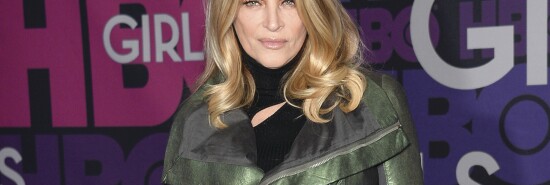
Kirstie Alley, 1951-2022
Rob Long
When a movie or television script calls for an actress to play a character who isn’t particularly attractive — the plain younger sister role, perhaps, or the overlooked personal assistant — the casting process is pretty simple: You give the part to a beautiful actress, and you make her wear ugly glasses.
Then, at the appropriate moment in the story, she inadvertently removes her glasses, everyone sees just how stunning she really is, and the movie or television show moves quickly toward its happy and romantically satisfying conclusion.
Movies, I don’t need to tell you, are not even a bit like real life. In real life, if we’re a little (or a lot) fat, awkwardly unblessed in the looks department, or given to bad hair days and blotchy skin, we can’t just take off our glasses and win over the object of our romantic obsession. In real life, we’re stuck with what we have.
Of course, in real life, some of us are blessed. Kirstie Alley, the kaleidoscopically talented actress from (among many other things) the long-running television comedy Cheers, who died Dec. 5 at 71, was one of those. She began her long career playing the ravishing leading lady roles and became famous as an icy femme fatale, the unattainable object of desire.
In her first moment on screen as the wrapped-up-tight Rebecca Howe, the manager of the Cheers bar, she glided in like a panther and let the scrappy, womanizing Sam Malone (Ted Danson) know who was the boss. But by the end of her first episode, she had revealed her character to be an anxious and insecure mess, a hilarious mix of ambition, incompetence, and sheer bad luck.
In other words, she did it all backward: She started the show as a beauty and then put her glasses on. Not many leading ladies have the courage to do that. There’s a very old Hollywood joke that expresses just how rare someone like Kirstie Alley was: “What do you call a beautiful woman who can do comedy?” And the answer is “a movie star” because that particular combination is lightning in a bottle.
Kirstie Alley’s performance as the romantically doomed and career-shredding Rebecca Howe was a six-year study in how to be beautiful and ridiculous at the same time. When the script called for her to cry, she would deliver a masterclass in sticky, runny-nosed sobs. “You want me to ugly cry here, right?” she’d ask, pointing to the script, and then her face would squinch up into a tight little fist of misery, her voice a series of hiccups and shrieks. Kirstie Alley put the “ugly” in ugly cry.
I remember a moment early in my career as a staff writer on Cheers when a scene called for Rebecca to climb into a garbage dumpster and root around for something valuable she’d lost. It had all of the elements of a perfect Kirstie scene: It was physical, it was humiliating, and it was a moment in which her character really needed something. Nobody could play frustrated desire like Kirstie Alley.
I had wandered over to the stage in the morning to get a cup of coffee, and suddenly Kirstie was barreling toward me, script in hand. She was worried that when it came time to shoot that scene, we’d only do it halfway. “I should be covered in garbage, OK? Hair, face, all of it. If I come out of there and my hair and makeup look OK, it won’t be funny. Me covered in gunk? Much funnier.”
I was 24 years old. It was my first one-on-one conversation with Kirstie Alley since joining the writing staff two weeks before. And it was my first one-on-one conversation with a working actress in my life. And here she was, the romantic lead actress on the most popular show in America at the time, demanding to look like crap.
I worked with Kirstie for the next five years and was never less than dazzled at her talent and her fearlessness. When my writing partner and I were working on a project that had a role for a youngish grandmother type, she called us up and told us she wanted the part. “But do you really think you’re old enough?” we asked. “I’m plenty old,” she answered. “The real question is whether you guys think I’m too fat.”
She wasn’t too fat, of course. She was perfect. She dived into the character with the same energy and enthusiasm with which she played Rebecca Howe and every other character in her long (but too-short) career. She carried the extra years — and extra pounds — with the same blunt grace that, 25 years before, carried her into the world’s most famous bar and turned the beautiful leading lady back into the girl with the glasses — which, as we all know, is much funnier.
Rob Long is a television writer and producer and the co-founder of Ricochet.com.
